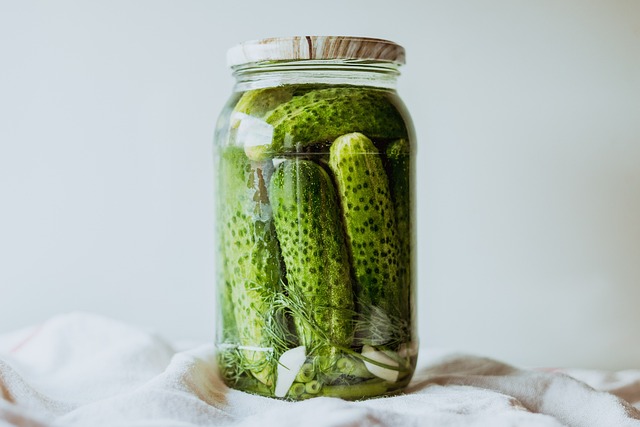Unveiling the Health Wonders of Probiotics and Fermented Foods
In recent times, the spotlight has shifted towards the immense health benefits offered by probiotics and fermented foods. These nutritional powerhouses have garnered widespread attention for their pivotal role in enhancing gut health and overall well-being. In this article, we delve into the multitude of advantages associated with probiotics and fermented foods, compare them with probiotic supplements, explore their correlation with fiber, and shed light on why they are indispensable for gut health.
The Advantages of Probiotics and Fermented Foods
Probiotics, consisting of live microorganisms that confer health benefits upon consumption, are abundant in fermented foods. These foods, having undergone a fermentation process facilitated by beneficial bacteria, yeast, or fungi, serve as natural reservoirs of probiotics.
1. Digestive Health Enhancement:
Probiotics play a vital role in fostering a balanced gut microbiome, thereby facilitating digestion and alleviating digestive ailments such as bloating and diarrhea. Fermented delights like yogurt and kimchi are brimming with probiotics, making them indispensable for maintaining optimal gut health.
2. Immunity Boosting:
A significant portion of the body's immune system resides in the gut. By promoting a diverse and balanced gut microbiome, probiotics bolster the immune system, thereby reducing susceptibility to infections and autoimmune disorders.

3. Mental Well-being:
Research on the gut-brain axis suggests that probiotics can positively impact mood and alleviate symptoms of anxiety and depression. Fermented foods contribute to this by fostering a healthy gut environment.
4. Nutrient Absorption Optimization:
Probiotics aid in the absorption of nutrients from food, ensuring maximum utilization of dietary nutrients and promoting overall health and vitality.
5. Regulation of Bowel Movements:
For individuals grappling with irregular bowel movements, probiotics offer relief by regulating bowel function and promoting regularity.
Fermented Foods vs. Probiotic Supplements
While probiotic supplements are readily available, fermented foods offer a more holistic approach to obtaining probiotics. Fermented foods not only supply probiotics but also a plethora of other nutrients and compounds essential for overall health. Moreover, the live cultures present in fermented foods may be more diverse and viable than those found in supplements.
However, probiotic supplements serve as a convenient option for individuals facing challenges in incorporating fermented foods into their diet or requiring higher doses of specific probiotic strains for therapeutic purposes. Ultimately, a balanced approach incorporating both fermented foods and supplements may yield optimal results.
The Synergy between Probiotics and Fiber
Fiber, an integral component of a healthy diet, complements the benefits of probiotics. Acting as a prebiotic, fiber provides nourishment for probiotic bacteria in the gut, thereby fostering their growth and enhancing gut health. The combined intake of probiotics and fiber has been associated with improved cholesterol levels, better blood sugar regulation, and a reduced risk of colorectal cancer.

The Gut Health Connection with Fermented Foods
Fermented foods undergo lacto-fermentation, a process wherein natural bacteria metabolize sugars and starches, producing lactic acid. This process not only preserves the food but also enhances its digestibility and nutritional value. The beneficial bacteria generated during fermentation populate the gut, promoting a diverse and resilient microbiome.
Additionally, fermented foods contain enzymes that aid digestion, along with beneficial compounds such as vitamins, minerals, and antioxidants. Regular consumption of fermented foods can contribute to maintaining a healthy balance of gut bacteria, thereby supporting optimal digestion and overall health.
In summary, the benefits of probiotics and fermented foods are myriad, ranging from improved digestion and immunity to enhanced mental well-being and nutrient absorption. By incorporating probiotic-rich fermented foods into your diet and complementing them with probiotic supplements when necessary, you can embark on a journey towards better gut health and overall wellness. Don't hesitate; start reaping the rewards of probiotics and fermented foods today.

Frequently Asked Questions About Probiotics and Fermented Foods
1. What exactly are probiotics and fermented foods?
Probiotics are live microorganisms known for their health benefits when consumed in sufficient amounts. Fermented foods, on the other hand, undergo a process where beneficial bacteria, yeast, or fungi break down sugars and other components, resulting in a product rich in probiotics.
2. How do probiotics contribute to gut health?
Probiotics play a vital role in maintaining a healthy balance of gut bacteria, aiding digestion, regulating bowel movements, and strengthening immunity. They can alleviate common digestive issues such as bloating, gas, and diarrhea, while also potentially impacting mental well-being positively.
3. What are some examples of fermented foods packed with probiotics?
Fermented foods come in various forms, including yogurt, kefir, kimchi, sauerkraut, kombucha, miso, and tempeh. These foods contain live cultures of beneficial bacteria that promote gut health when incorporated into one's regular diet.
4. How do fermented foods differ from probiotic supplements?
Fermented foods provide a natural source of probiotics alongside additional nutrients and compounds beneficial for health. Probiotic supplements, conversely, offer concentrated doses of specific probiotic strains, making them convenient for individuals facing challenges in consuming fermented foods regularly.
5. Can probiotics and fiber collaborate to improve gut health?
Absolutely. Fiber serves as a prebiotic, stimulating the proliferation of beneficial probiotic bacteria within the gastrointestinal tract. This mutually beneficial relationship enhances gut health, aiding in digestion, nutrient absorption, and potentially reducing the risk of certain diseases.

6. Why are fermented foods touted as beneficial for gut health?
Fermented foods undergo a process called lacto-fermentation, which not only improves their digestibility but also enhances their nutritional profile. The beneficial bacteria generated during fermentation populate the gut, fostering a diverse and resilient microbiome. Additionally, fermented foods contain digestive enzymes and beneficial compounds like vitamins, minerals, and antioxidants.
7. How can I include probiotics and fermented foods in my daily diet?
Incorporating probiotics into your diet is as simple as adding fermented foods like yogurt, kefir, kimchi, sauerkraut, and kombucha to your meals. Aim for regular consumption to maximize their benefits. If needed, consult a healthcare professional about incorporating probiotic supplements into your routine, particularly if you have specific health concerns or dietary preferences.
Powered by Froala Editor





Leave a Reply